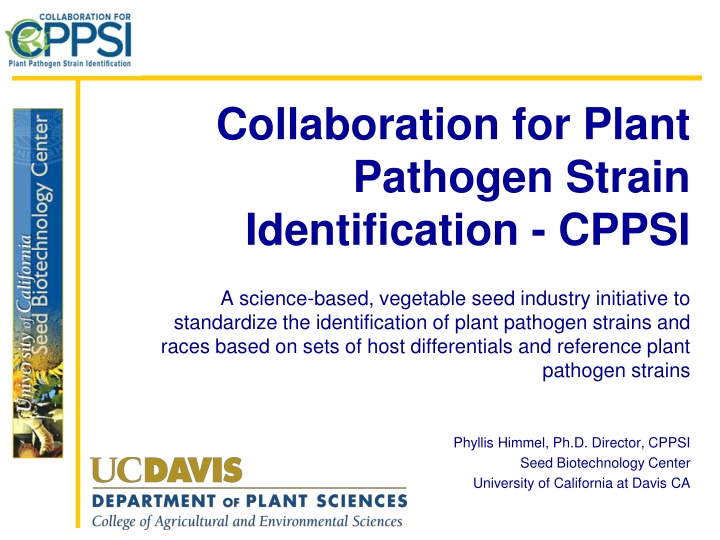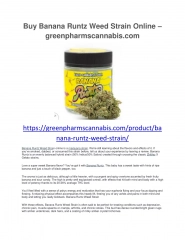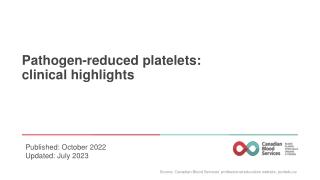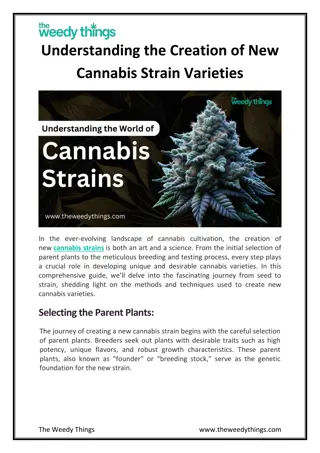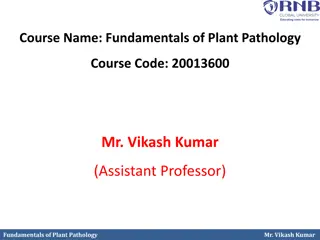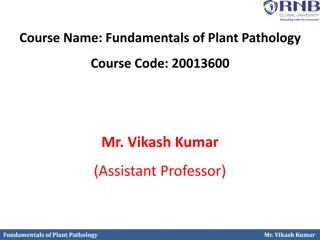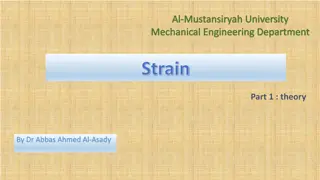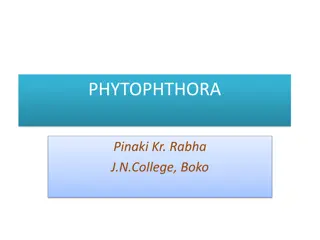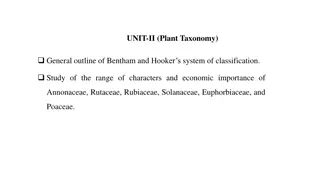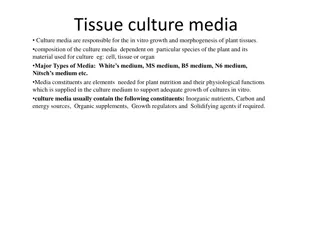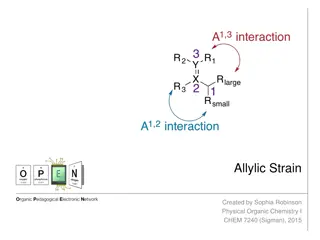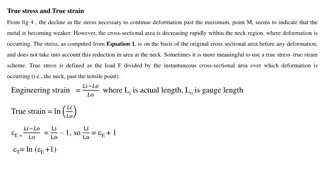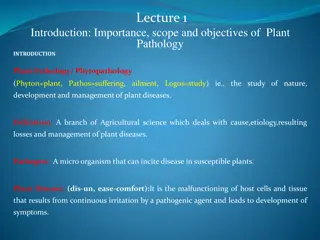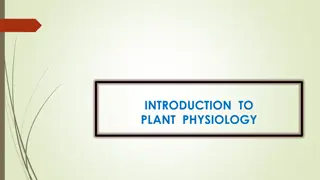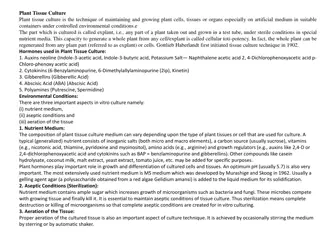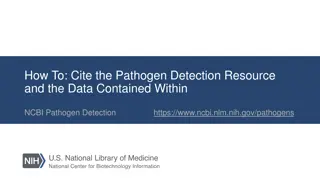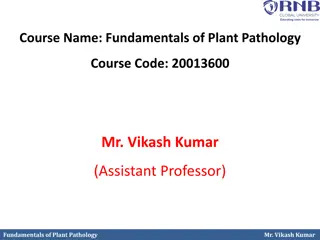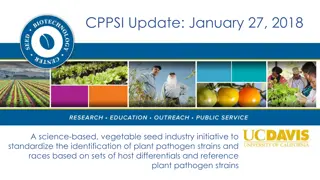Collaboration for Plant Pathogen Strain Identification - CPPSI Initiative Overview
CPPSI, a science-based initiative in the vegetable seed industry, aims to standardize plant pathogen strain identification using host differentials and reference strains. The goals include developing differential host sets, enhancing awareness, and facilitating material distribution. Criteria for expanding pathogen systems and progress on new sets are outlined. Financial support is being sought for continued growth and membership expansion.
Download Presentation

Please find below an Image/Link to download the presentation.
The content on the website is provided AS IS for your information and personal use only. It may not be sold, licensed, or shared on other websites without obtaining consent from the author.If you encounter any issues during the download, it is possible that the publisher has removed the file from their server.
You are allowed to download the files provided on this website for personal or commercial use, subject to the condition that they are used lawfully. All files are the property of their respective owners.
The content on the website is provided AS IS for your information and personal use only. It may not be sold, licensed, or shared on other websites without obtaining consent from the author.
E N D
Presentation Transcript
Collaboration for Plant Pathogen Strain Identification - CPPSI A science-based, vegetable seed industry initiative to standardize the identification of plant pathogen strains and races based on sets of host differentials and reference plant pathogen strains Phyllis Himmel, Ph.D. Director, CPPSI Seed Biotechnology Center University of California at Davis CA
2016 CPPSI Goals Develop the round two differential host sets: lettuce Downy mildew, tomato and pepper TSWV, watermelon Fusarium wilt Plan for the round three differential host sets: melon Powdery mildew, tomato Fusarium wilt and Root knot nematode Continued outreach to grow CPPSI awareness, for continued funding and new members Develop and distribute an expanded CPPSI vision document Harmores 3 planning and participation ISF DRT WG participation Emerging diseases website Facilitate distribution of ISHI reference materials
Criteria for the development of new pathogen systems into differential host sets Disease resistance system is important to the seed industry Claims of disease resistance are made in commercial varieties Resistance is characterized and published No additional confounding factors in expression of resistance MTA possible if targeted gene is in commercial hybrid
Currently Available Sets: Nagoya Protocol Fusarium wilt of melon Fusarium oxysporum f. sp. melonis Bacterial spot of pepper Xanthomonas euvesicatoria Tomato mosaic Tomato mosaic virus Spinach downy mildew Peronospora farinosa f. sp. spinaciae
Progress on New Differential Sets in Development: 2016: September 2017 Fusarium wilt of watermelon Downy mildew of lettuce TSWV of pepper TSWV of tomato 2017: December 2018 Powdery mildew of melon Fusarium wilt of tomato Root knot nematode of tomato
Finances Midway through the initial three year funding commitment from founding sponsors Recruiting new members Securing commitments for renewed 3 year membership Submitted a CDFA SCBG proposal for 3 years of funding in support of continued CPPSI growth Working with UC Davis for approval to start charging nonmembers for differentials and reference strains and for interested parties to post their logos on the CPPSI website WG to develop funding model ID sustainable success
2016 Progress Since January 2013, 277 differential host sets and reference pathogen strains distributed Distribution is global with 44% orders from within US March 2016 tracking visitors to www.cppsi.org: 747 CPPSI website visitors have viewed 2,544 site pages and 38% are returning visitors CPPSI members participated in the ISF Disease Resistance Terminology review and revision, strain coding CPPSI will develop, administer and coordinate a website that will pool information and resources about new and re- emerging plant diseases and pathogen strains: www.emergingdiseases.ucanr.edu Available only to CPPSI members, Farm Advisors, Extension Agents and university scientists working in the areas of plant diseases, seed pathology and plant sciences. A perk of CPPSI membership
2016 Progress Comparative testing of current reference plant pathogen strains is under way with Naktuinbouw and GEVES- MATREF: Tomato Fusarium wilt and ToMV (underway), TSWV (planned) and Fulvia fulva (planned) Articles about CPPSI were published in Seed Today, Seed World and on the UC Davis Seed Central website CPPSI is an official APS subcommittee to the APS Collections and Germplasm Committee. Kimberly Webb is the 2016 2017 committee chair and I am the 2017 2018 incoming chair. This role provides great exposure for CPPSI and access to APS membership as plant pathology content experts and as plant pathogen strain donors. ISHI reference material distribution in planning stage
2016 2017 Next Steps Develop & distribute the round two differential host sets: lettuce Downy mildew, tomato and pepper TSWV, watermelon Fusarium wilt 6 months late Plan for the round three differential host sets: melon Powdery mildew, tomato Fusarium wilt and Root knot nematode Continued outreach Develop and distribute an expanded CPPSI vision document Harmores 3 planning and participation ISF DRT WG participation Emerging diseases website Facilitate distribution of ISHI reference materials WG to develop funding model ID sustainable success
CPPSI Working Group Members Phyllis Himmel (Chair) UC Davis Seed Biotechnology Center Elisabetta Vivoda VoloAgri Kishor Bhattarai HM Clause Craig Sandlin - Syngenta Lindsey du Toit Washing State University Kimberly Webb USDA ARS, Phytopathology Stephanie Greene - USDA ARS, Plant Genetic Resources Conservation Staci Rosenberger Monsanto Vegetable Seeds Jessica Koczan Monsanto Vegetable Seeds Nicki Philips Enza Zaden Phil Brown Sakata Marco Bello Sakata Surendranath Baliji Bayer Crop Sciences Vegetable Seeds Catalina Cespedes Bayer Crop Sciences Vegetable Seeds
CPPSI Sponsors The seven vegetable seed company founding supporters Advisory Council Bayer Enza Zaden HM Clause Monsanto Rijk Zwaan Sakata Syngenta
